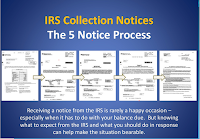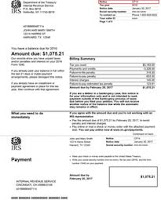A district court has concluded in US v. Bittner (DC TX 6/29/2020), that the penalty for a non-willful FBAR violation relates to each FBAR form not timely or properly filed rather than to each foreign financial account maintained but not timely or properly reported.
Under 31 USC § 5314(a), every U.S. person that has a financial interest in, or signature or other authority over, a financial account, or accounts, in a foreign country must report the account, or accounts, to IRS annually on a FinCEN Report 114, Report of Foreign Bank and Financial Accounts (FBAR) if the aggregate value of the foreign financial accounts exceeds $10,000 at any time during the calendar year and one FBAR is used to report multiple accounts.
The penalty for violating the FBAR requirement is set forth in 31 USC § 5321(a)(5) which provides that the Secretary of the Treasury may impose a civil money penalty on any person who violates, or causes any violation, of 31 USC § 5314(a). The maximum amount of the penalty depends on whether the violation was non-willful or willful. The maximum penalty amount for a non-willful violation of the FBAR requirements is $10,000. (31 USC § 5321(a)(5)(B)(i))
The amount determined under 31 USC § 5321(a)(5)(C) is:
(i) in the case of a violation involving a transaction, the amount of the transaction, or
(ii) in the case of a violation involving a failure to report the existence of an account or any
identifying information required to be provided with respect to an account, the balance in
the account at the time of the violation. (31 USC § 5321(a)(5)(D)).
On June 6, 2019, the government filed a complaint against Taxpayer to collect $3 million in civil, non—willful FBAR penalties. The Taxpayer’s amended returns for the relevant periods only resulted in a total of $625 unpaid tax, leaving Taxpayer to question the appropriateness of the punishment sought. Taxpayer asserts in his Answer to the Complaint, filed July 30, 2019, that the “astronomical penalties of nearly $3 million against for not timely filing 5 FBAR forms is far in excess of any appropriate punishment for his non—willful conduct with respect to those statutory violations.”
In this case the taxpayer was born in Romania. He moved the U.S. in the early 1980’s and became a naturalized U.S. citizen in 1987. In 1990, Taxpayer returned to Romania and resided there until returning to the U.S. in 2011. During that time, Taxpayer was a successful businessman and investor, maintaining signature authority or control over multiple accounts.
Taxpayer asserts that while he lived in Romania, he had no knowledge of FBAR requirements. He emphasizes that after returning to the U.S. and learning about the requirements, he acted promptly to comply, and that any mistakes made were the result of his CPA’s gross negligence.
The government contends that from 2007 through 2011, Taxpayer failed to report more than 50 accounts. The government assessed $10,000 per account per violation in arriving at almost $3 million in penalties and accruals. On the other hand, Taxpayer argues that the statutory penalty applies per year.
The United States District Court for the Central District of California, in United States v. Boyd, held that the IRS correctly assessed a taxpayer, who non—willfully failed to timely report her 14 accounts in the U.K., on a per account basis. In other words, each account not listed on a timely filed FBAR was a non—willful violation; thus, more than one FBAR violation per year may be assessed, according to the court.
The Internal Revenue Manual (IRM) language also arguably supports a “per year” approach, providing that the FBAR “must be filed for each calendar year that the person has a financial interest in, or signature authority over, foreign financial account(s) whose aggregate balance exceeds the $10,000 threshold at any time during the year.” and, per the IRM, most examiners will impose one penalty per year for non—willful violations.
The district court concluded that the penalty for a non-willful FBAR violation relates to each FBAR form not timely or properly filed rather than to each foreign financial account maintained but not timely or properly reported. Thus, the penalty for Mr. Bittner was $10,000.
The district court looked to the language of the willful penalty and found that 31 USC § 5321(a)(5)(D) mentions "account" three times. The court said, "Congress clearly knew how to make FBAR penalties account specific."
The court said since "account" is not mentioned in 31 USC § 5321(a)(5)(B)(i), the non-willful penalty only applies to the violation of the FBAR rules. The FBAR rules only talk about filing a return. Thus, the non-willful penalty only applies to the return, not to the number of accounts not mentioned on the return.
The district court recognized that Boyd came to an opposite conclusion. But the court found that the Boyd court's analysis fails to provide adequate guidance as to how it reached the conclusion it did. The district court also said that Boyd is in a different district in a different circuit.
Have an FBAR Penalty Problem?
Want to Know Which OVDP Program is Right for You?
Contact the Tax Lawyers at
Marini & Associates, P.A.
for a FREE Tax Consultation
Toll Free at 888-8TaxAid (888) 882-9243
Read more at: Tax Times blog



















